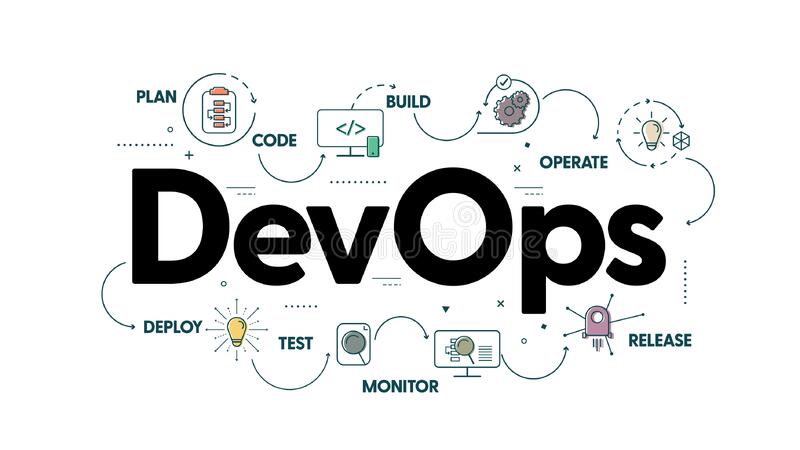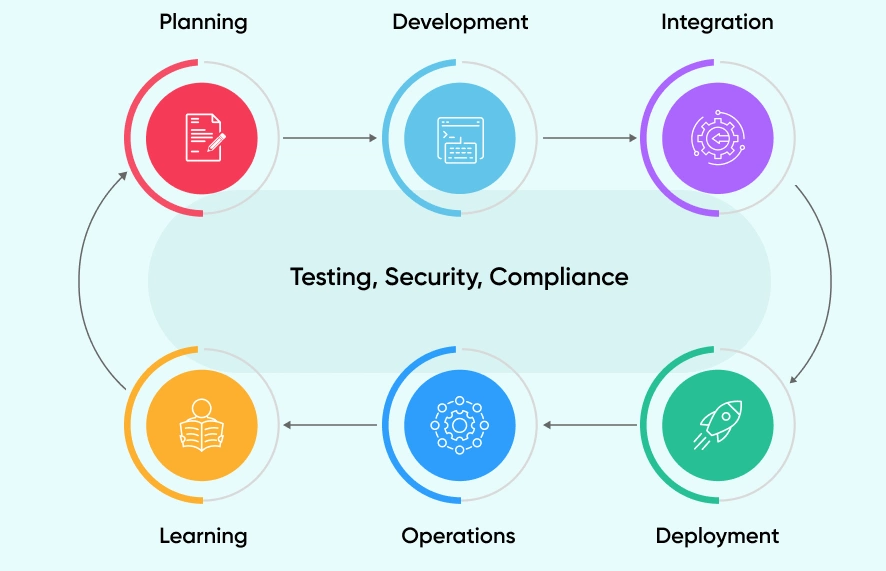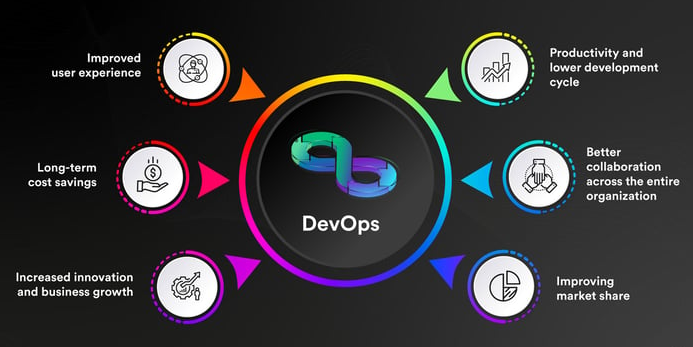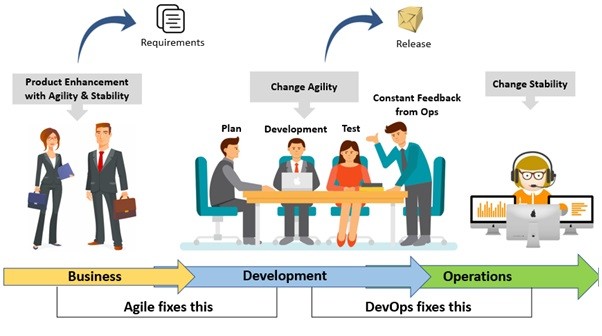Why DevOps Matters: The Key Principles of a Successful DevOps Culture
 Gaurav Janjal
Gaurav Janjal
What is DevOps?
DevOps is a term that combines the words "development" and "operations." It is a culture, set of practices, and set of tools that enable organizations to deliver software applications more quickly, efficiently, and with higher quality. DevOps is based on the idea of breaking down the barriers between the development and operations teams, creating a more collaborative and integrated approach to software development.

Why is DevOps important?
DevOps is important because it enables organizations to deliver software applications faster, with higher quality, and with improved user experience. In today's fast-paced business environment, the ability to deliver software applications quickly and efficiently is critical. DevOps helps organizations achieve this by breaking down the silos between development and operations teams, enabling better collaboration, and creating a culture of continuous improvement.

What are the key principles of the DevOps culture?
The DevOps culture is based on several key principles, including collaboration, automation, and continuous improvement.
Collaboration:
Collaboration is a fundamental principle of the DevOps culture. Collaboration between development and operations teams enables them to work together towards a common goal of delivering high-quality software applications. By creating cross-functional teams where developers and operations professionals work together on the same project, they can share knowledge and expertise, reducing the risk of errors and improving the quality of the software application.
Automation:
Automation is another key principle of the DevOps culture. Automation enables organizations to deliver software applications faster and with higher quality. By automating the deployment process, organizations can reduce the time it takes to deploy software applications while also reducing the risk of errors. Automation also enables organizations to perform testing and monitoring more efficiently, which helps to identify and resolve issues before they become critical.
Continuous Improvement:
Continuous improvement is an ongoing process that enables organizations to deliver software applications that meet the changing needs of their users. This is achieved by regularly reviewing and improving the processes used to develop and deploy software applications. By gathering feedback from users, identifying areas for improvement, and implementing changes to improve the software development process, organizations can continuously improve the quality of their software applications.
What are the benefits of the DevOps culture?
The DevOps culture offers several benefits to organizations that adopt it. These benefits include:
- Faster Time to Market:
By breaking down the silos between development and operations teams, organizations can deliver software applications faster. Collaboration and automation enable organizations to deploy software applications quickly and reliably, reducing the time it takes to bring new features and products to market.
- Higher Quality Software:
The DevOps culture emphasizes automation and continuous improvement, which leads to higher-quality software applications. Automation reduces the risk of errors and improves the reliability of the software, while continuous improvement enables organizations to identify and address issues before they become critical.
- Improved Collaboration:
The DevOps culture promotes collaboration between development and operations teams, which leads to better communication and understanding between the two teams. This collaboration enables teams to work together towards a common goal, reducing delays and misunderstandings.
- Better User Experience:
By delivering software applications faster and with higher quality, organizations can improve the user experience. Users are more likely to use and recommend software applications that meet their needs and work reliably.
Conclusion:
The DevOps culture is a shift towards a more collaborative and integrated approach to software development and deployment. By breaking down the silos between development and operations teams, organizations can deliver software applications faster, with higher quality, and with improved user experience.
The DevOps culture emphasizes collaboration, automation, and continuous improvement, which enables organizations to adapt to changing user needs and deliver software applications that meet those needs.
Subscribe to my newsletter
Read articles from Gaurav Janjal directly inside your inbox. Subscribe to the newsletter, and don't miss out.
Written by

Gaurav Janjal
Gaurav Janjal
Hey, I'm Gaurav Janjal, an open-source enthusiast and aspiring DevOps/Cloud Engineer. Technology has always fascinated me, and I'm constantly seeking out new challenges and opportunities to learn and grow. My passion lies in building innovative solutions that help businesses achieve their goals. I've gained experience in various areas, including cloud computing, DevOps, containerization, automation, and more. I enjoy using tools like Kubernetes, Docker, Ansible, Terraform, and AWS to create scalable and reliable infrastructure. As a strong communicator and collaborator, I believe in the power of teamwork. I'm always willing to lend a helping hand to my colleagues and community members. Through my Hashnode blog, I share my insights, experiences, and ideas with the world. I love to write about the latest trends in cloud computing, share tips for mastering a particular tool, and provide insights into my personal journey as a DevOps/Cloud Engineer. When I'm not working on tech projects, I enjoy hiking, reading, and spending time with my family.
